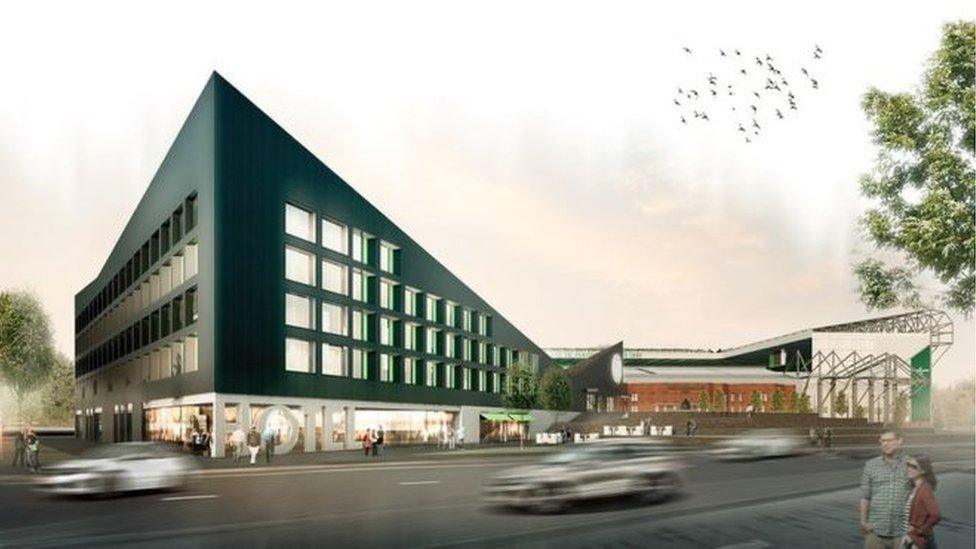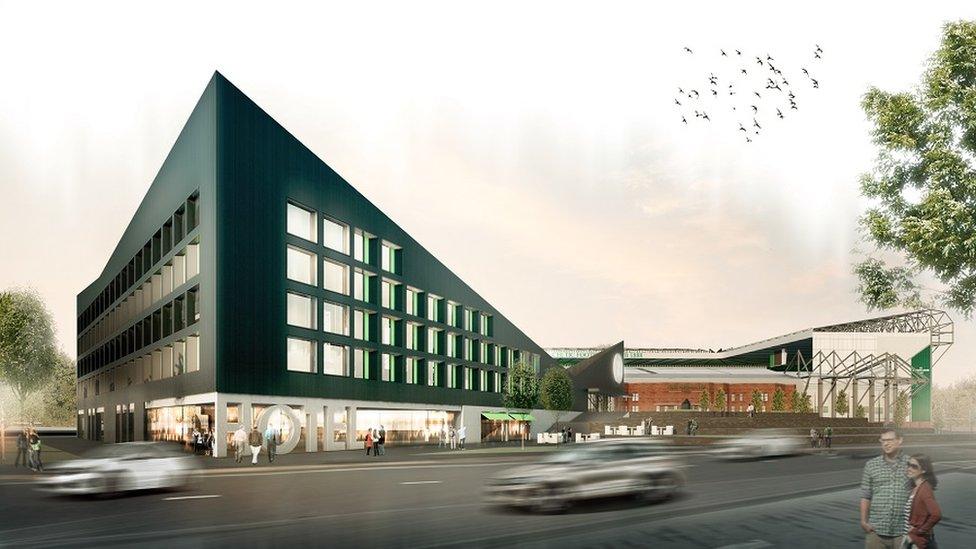Celtic get go-ahead for hotel and museum project
- Published

Celtic have been granted planning permission in principle for proposed developments at their Parkhead stadium.
The regeneration includes a hotel, museum, a retail store for club merchandise and a new ticket office - at an estimated cost of £18m.
Glasgow City council passed the plans with no objections lodged and said work must begin within three years.
The club have emphasised, however, that "considerable work and investment" is needed for the project to go ahead.
The hotel would be based on London Road, outside the main stand at Celtic Park and close to the Emirates Arena.
Peter Lawwell welcomes planning approval for Celtic Park development
Celtic unveiled plans in February, releasing images of their proposed development.
The club believe that the plans will create over 100 jobs, reduce congestion and provide an economic boost to the area.
In a statement on Celtic's website, the club said the development would be "hugely positive" for the community and the football club .
But the club said it understood there would be many obstacles to overcome while completing the multi-million-pound project.
A Celtic spokesman said: "We are very pleased that initial planning permission has been granted. Clearly, there is still considerable work to be done in bringing such an ambitious project to fruition.
"However, we will now engage with other relevant parties to assess this potential development."

Plans include a hotel, museum and a retail store
The spokesman added: "Provision of a club museum and improved shop/ticketing facilities as proposed will greatly enhance the visitor experience and will help to sustain jobs and economic activity throughout the year.
"The provision of a hotel along with the club facilities will increase the attractiveness of the location as a tourist destination with spin-off benefits to the entire area.
"The proposed development will result in the creation of much-needed new employment opportunities associated with the hotel and museum.
"By locating the proposed hotel immediately beside the stadium and arena, pressure on the local transport network will be reduced, particularly at times of peak movement."
- Published21 February 2017
